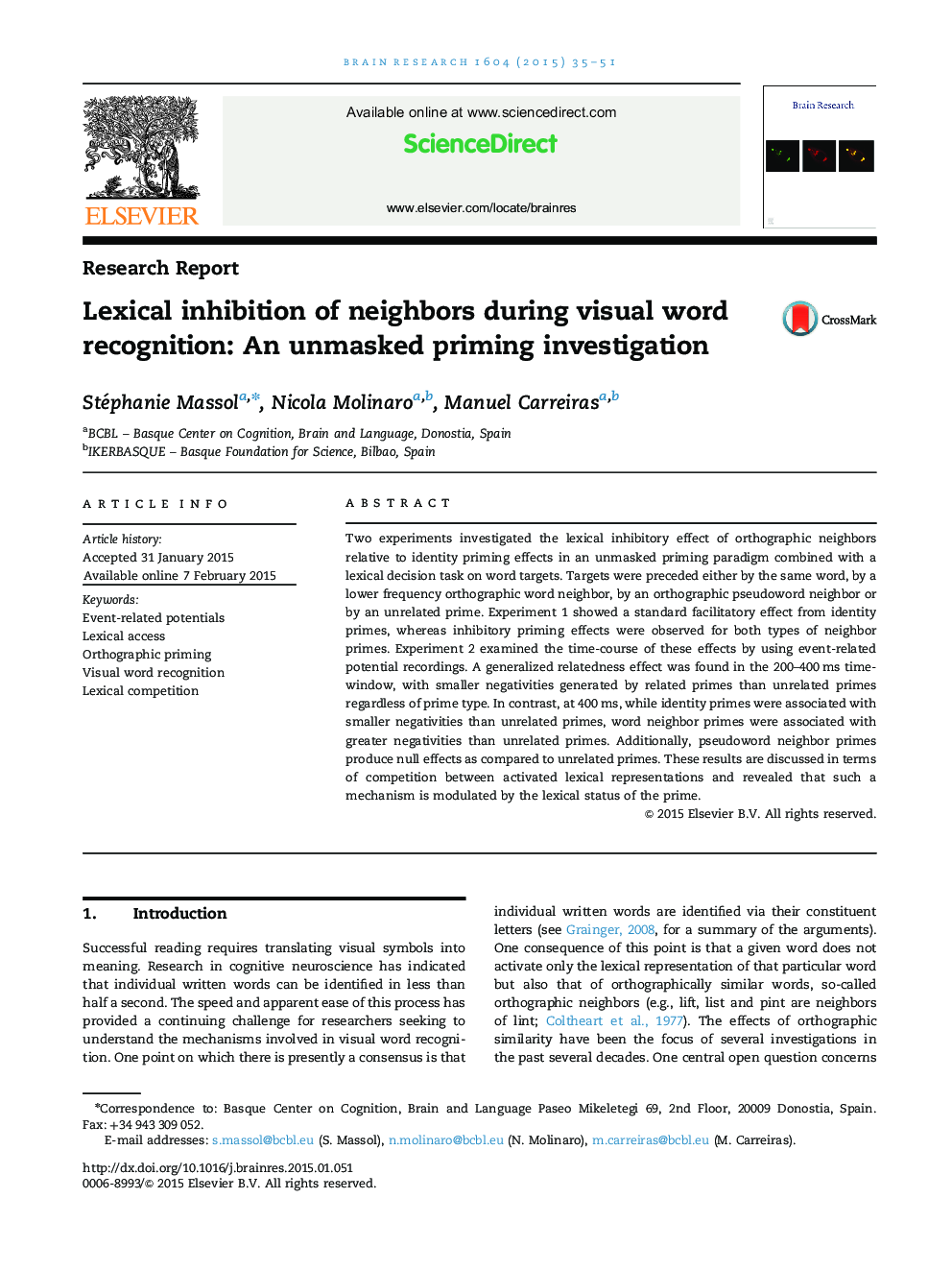| Article ID | Journal | Published Year | Pages | File Type |
|---|---|---|---|---|
| 4323839 | Brain Research | 2015 | 17 Pages |
•Lexical-related priming effects with unmasked priming paradigm.•Differential ERP effects with identity, word and pseudoword neighbor primes•Lexical status of the neighbor prime modulates priming effects at 400 ms.•Lexical status of the prime plays a major role during target identification.
Two experiments investigated the lexical inhibitory effect of orthographic neighbors relative to identity priming effects in an unmasked priming paradigm combined with a lexical decision task on word targets. Targets were preceded either by the same word, by a lower frequency orthographic word neighbor, by an orthographic pseudoword neighbor or by an unrelated prime. Experiment 1 showed a standard facilitatory effect from identity primes, whereas inhibitory priming effects were observed for both types of neighbor primes. Experiment 2 examined the time-course of these effects by using event-related potential recordings. A generalized relatedness effect was found in the 200–400 ms time-window, with smaller negativities generated by related primes than unrelated primes regardless of prime type. In contrast, at 400 ms, while identity primes were associated with smaller negativities than unrelated primes, word neighbor primes were associated with greater negativities than unrelated primes. Additionally, pseudoword neighbor primes produce null effects as compared to unrelated primes. These results are discussed in terms of competition between activated lexical representations and revealed that such a mechanism is modulated by the lexical status of the prime.
